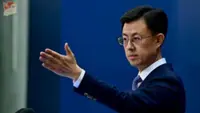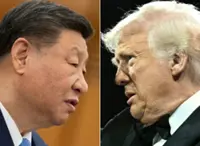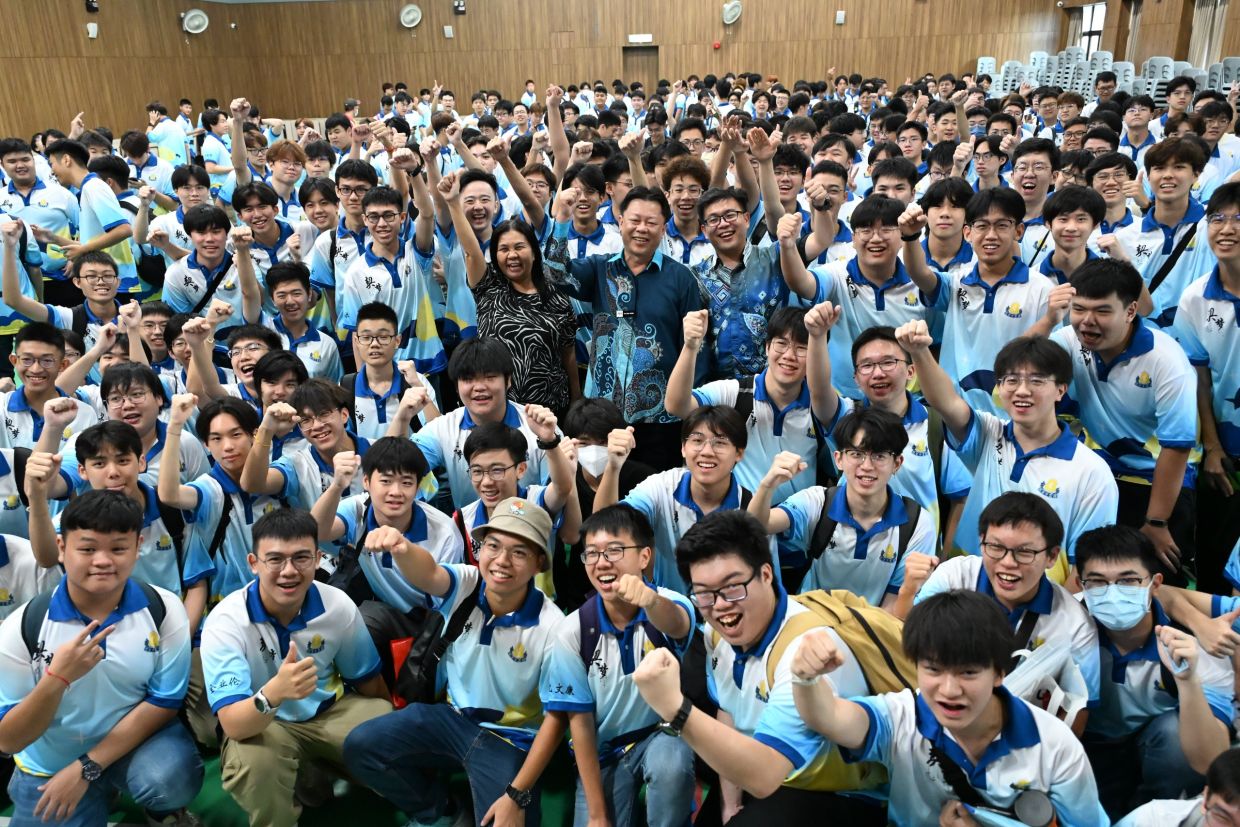
History in motion: Road closure announcements like this one on Jalan Kuching heading to the city centre precede the arrival of the Chinese president, whose visit is seen as a pivotal moment for Malaysia-China relations. — IZZRAFIQ ALIAS/The Star
PETALING JAYA: Chinese President Xi Jinping’s three-day visit to Malaysia, starting today, marks a new strategic chapter for Malaysia-China relations, with key industry players hoping for stronger and deeper bilateral trade in high potential sectors that will mutually benefit both nations.
Malaysia-China Friendship Association president Datuk Abdul Majid Ahmad Khan said the visit will be meaningful and significant following several high-level visits by Prime Minister Datuk Seri Anwar Ibrahim to China recently.
Xi’s visit, the former ambassador to China said, presents a good opportunity for both sides to strategise and discuss the way forward amid escalating global trade wars.
The ties between Malaysia and China were established through personal rapport and this is set to further flourish with Xi’s visit, he said when contacted yesterday.
Xi’s state visit to Malaysia is at the invitation of His Majesty Sultan Ibrahim, the King of Malaysia. The visit marks Xi’s second official trip to the country. His last visit was in 2013.
The Chinese leader will meet with Sultan Ibrahim and hold talks with Anwar.
Since 2009, China has remained Malaysia’s largest trading partner.
Abdul Majid said ties between the countries have strengthened since Xi’s last visit.
Since then, strong bilateral trade with its value almost exceeding RM400bil was recorded, he added.
“In the education sector, we also have about 50,000 students from China here and over 15,000 of their Malaysian counterparts studying there.
“We hope to see more dynamic exchanges in this area.”
Xi’s visit will also set the tone for ties between the two countries in the coming years, said Abdul Majid.
“Last year marked the golden jubilee of the establishment of diplomatic relations between Malaysia and China.
“This visit can set the tone for the next 50 years,” he added.
From a regional perspective, the visit represents an endorsement of the close cooperation between Asean and China, he said, adding that the two have been each other’s largest trading partner for the last five consecutive years.
Associated Chinese Chambers of Commerce and Industry Malaysia (ACCCIM) president Datuk Ng Yih Pyng said the Chinese president’s momentous visit is a key opportunity to elevate bilateral relations and economic cooperation.
“We welcome China’s continued commitment to import more of Malaysia’s high-quality agricultural products.
“These exports are vital to Malaysia’s trade balance and support the livelihood of thousands of smallholders, farmers and small and medium enterprises (SMEs) across the value chain.
“Beyond trade in commodities, we should focus on expanding cooperation in high-value sectors, including green technology, artificial intelligence (AI), the digital economy and smart manufacturing.
“These areas are closely aligned with Malaysia’s New Industrial Master Plan 2030 (NIMP 2030), which aims to build a future-proof, high-tech and innovation-driven economy.”
ACCCIM, he said, also appreciates the positive impact of China’s current visa-free policy for Malaysians, which has facilitated smoother business missions.
“Such measures are crucial for enhancing mobility, strengthening trust and accelerating bilateral economic activities,” added Ng.
Describing the visit as pivotal to charting new frontiers, Asean-India Business Council (AIBC) alternate chair Nivas Ragavan, said Malaysia-China trade has been on an upward trajectory for decades and products like palm oil, durian, bird’s nest, halal food and electric and electrical appliances have been strong pillars.
“This visit, however, presents a timely opportunity to diversify collaboration into healthcare, digital economy, AI, green technology, education and logistics – sectors both nations have complementary strengths in.”
He said AIBC also hopes to see more Belt and Road Initiative-driven infrastructure partnerships, SME-level cooperation and technology exchanges that deliver long-term value for both countries.
SME Association of Malaysia national president Chin Chee Seong said its members hope the visit will help Malaysia weather the impact of the US tariffs.
“Malaysia, as the Asean Chair, is an important friend to China.
“This is the chance for us to ask how we can grow together,” he said, suggesting that Malaysia and China expand their cooperation in the halal and palm oil industries.
“Perhaps we can look at setting up a special free trade zone.
“We need to diversify our earnings and markets. This will be a good opportunity to work closely together,” he added.











































